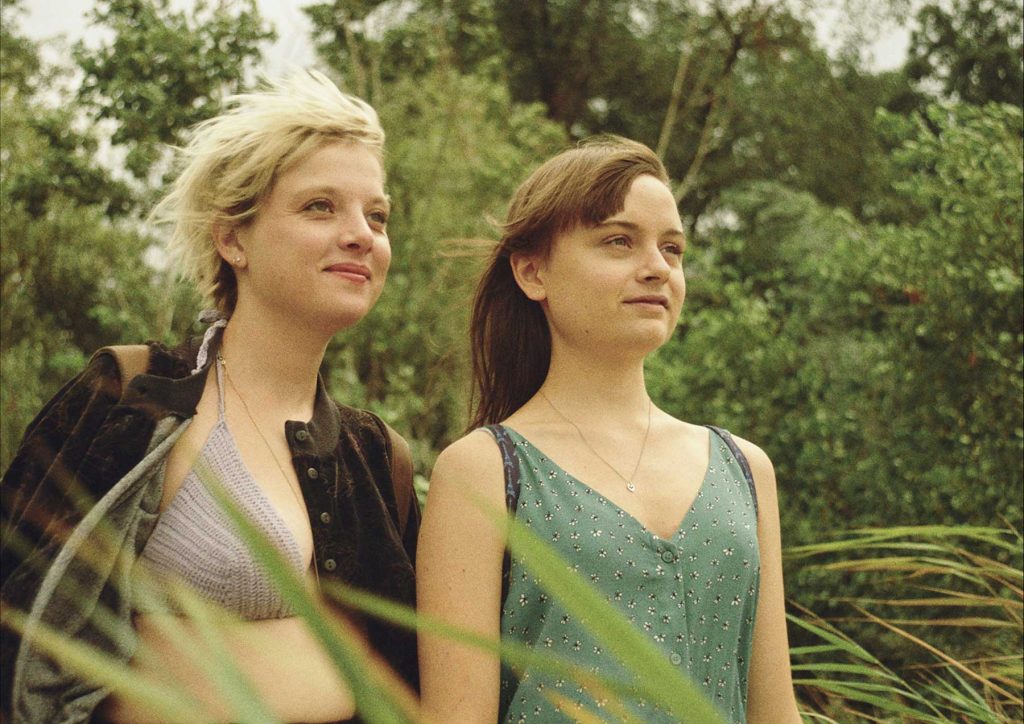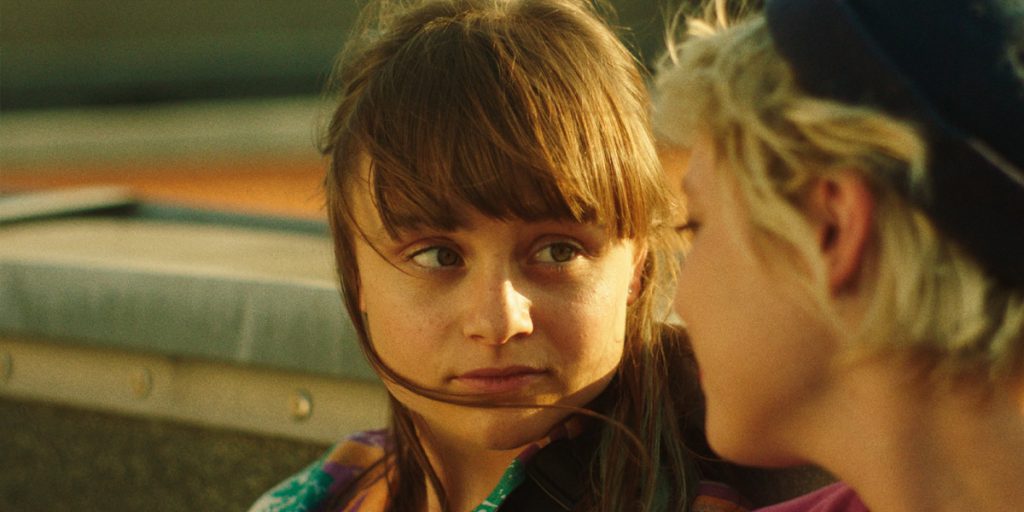Cocoon is a fairly standard drama about growing up that wears its influences on its sleeve and is elevated by its sensitive performances and empathetic direction.
There is a popular saying that goes “hindsight is 20/20”, meaning that, once an event or time has passed, we can look back on it with a clearer perspective. We can evaluate what transpired without taking sides or showing bias. The antithesis of this saying is the idea of looking through the past through “rose-colored glasses”, where everything seems wonderful and perfect, regardless of whether or not that is the truth. In her sophomore feature Cocoon, director Leonie Krippendorff pits nostalgia and objectivity against each other as she chronicles a period of months in the life of Nora (Lena Urzendowsky), a young woman navigating toxic friendships, budding sexuality, and the general perils of growing up in a big city. With influences ranging from the films of A24 to Céline Sciamma, Krippendorff crafts a story that, while not especially unique, is sure to win over viewers with its relatable characters and engaging storytelling.
The first scene of Cocoon is striking in both its filmmaking and the concept of the scene. Filmed on a phone, two teenagers find a sleeping homeless man and begin altering his hair without his consent, only waking up once they proceed to cut off large chunks from his scalp. Anyone can agree that it is a horrible thing to torment a homeless person, so, immediately, the two girls on screen lose our sympathy, leading us to wonder what sort of characters we will be spending the remainder of the film with. Thankfully, the scene is revealed to be a video our main cast of characters is watching, and while the reactions to the prank range from laughter to disgust, we don’t immediately hate them like the girls in the video.
Throughout the film, similar instances occur, where the characters will act like teenagers do, often violating social customs and skirting the edges of the law. We are tempted to condemn them for their foolishness and immaturity, but it’s made clear that their actions are no different from mistakes the viewers may have made in their past. After all, most people have at some point broken some small law or committed a minor transgression with no lasting consequences, how is that any different from the events playing out on screen?

While the cast of Cocoon is rather large for a teen drama, the story is focused on Nora. For the first act, she quietly drifts by her older sister Jule (Lena Klenke) and does her best to make her presence unknown. Urzendowsky does a magnificent job of communicating Nora’s inner state through actions as simple as glances or one-word replies, gaining our empathy early on when her hand is shattered in a surreal game of chicken with Jule’s friends, subsequently exposing the fraught relationship between the sisters and the yet unseen mother, who is mentioned but evidently inactive in the lives of her daughters. Later she will appear, providing a somber explanation to the daughter’s antics and independence. The family is distant, both emotionally, with their guarded conversations, and physically with daughters choosing to spend most of their day away from home.
While the story of Cocoon leans heavily into objectivity and naturalism, the style of the film very much mimics the warm indie movie feel that is ready-made for cinematography Instagram accounts and aesthetic collages on Tumblr. The synth-heavy score, by Maya Postepski, harkens back to the classic compositions of the 1980s done by Vangelis, such as Blade Runner and Chariots of Fire, and imbues the film’s many montages with a feeling of timelessness and possibility. Martin Neumeyer’s cinematography captures Berlin’s golden hour with exquisite grace and beauty and paints the urban metropolis as both daunting and exciting for the characters as they spend their days visiting public pools and exploring areas, they shouldn’t be in. All these aspects combined together give Cocoon a dreamlike quality that is sorely needed in a time where the world seems to be dominated by doom and gloom.
While the aesthetics of Cocoon are pleasing and the clash between nostalgia and truth is intriguing, the film on the whole does not attempt to break any new ground in the coming-of-age genre. With the immense popularity of films such as Booksmart and Lady Bird in the past few years, female-led films focused on growing up have made their way from sleepover essentials to serious awards contenders, and the field is getting crowded. Most of the issues portrayed in the film have been done better or with a greater impact, and, when the credits roll, no scenes or lines stand out. But, for what it attempts, Cocoon succeeds as a tender and empathetic story that will surely resonate for viewers who were once in Nora’s shoes.
Cocoon (Kokon) was released in UK & Irish cinemas and On Demand platforms on 11 December, from Peccadillo Pictures.

